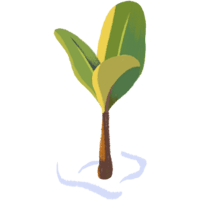In February 2021, Only One members are supporting a kayak-powered sustainable fishing project by Love The Oceans, a small nonprofit located in Jangamo Bay, Mozambique.
Sometimes called the “Pearl of the Indian Ocean,” Mozambique’s 1,535-mile coastline is studded with countless glistening bays and is home to an even greater number of small fishing villages and towns. Humpback whales still grace these shores, but look beneath the foam-capped waves and you will see that all is not well.
In Jangamo Bay, as in other places, necessity has driven the local community to use unsustainable fishing practices, threatening their livelihoods and leading to drastic declines in reef biodiversity and vital predator species like sharks.
To protect the most valuable natural asset they have, feed their families, and strengthen their opportunities to benefit from eco-tourism and the ocean’s wealth, these communities need a new approach that enables sustainable fishing to exist alongside effective ocean protection.
One determined community believes it has the answer: Kayaks.
The community — working with our partner Love The Oceans, Guinjata Fishing Chief Gemo Guilamba, and the fishermen — has launched a new kayak-powered approach to fishing that is providing the opportunity to transition away from unsustainable fishing, such as gill netting, to the much more sustainable kayak pole and line fishing.
Kayak-powered fishing will allow the coastal communities of Jangamo to survive this difficult time by harvesting protein from the sea, but allow them to do so in a sustainable manner — a win for the sea, and the people!
Project impact
15 kayaks will be installed and equipped with lifejackets, radios, and fishing tackle
27 fishermen and their families (around 150 community members) will benefit from the program, increasing their catches and their income
4 workshops will be provided to fishermen, offering training in sustainability and how to protect the ocean they depend on
3,135 hectares of ocean will have the opportunity to recover from gill netting and unsustainable fishing
Why kayak fishing matters
In Jangamo, the strong surface currents and often adverse weather conditions mean that without boats most of the fishermen are limited to fishing on the shallow, local reefs, often with gill-nets. These long, unmanned nets are cast close to shore and left unattended for hours on end, indiscriminately catching many types of fish, including sharks and rays.
Kayak fishing — with a line and pole — enables selective fishing in deeper waters, reducing the pressure on the near shore reef ecosystems and allowing them to recover. Plying their skills further from shore also enables the fishermen to target piscivore fish, which are generally bigger in size; increasing the value of their catch and helping to better sustain their families. This is a solution that is good for people and for nature.
Silva Cumbi, community leader in Guinjata, knows how important it is to innovate and adopt new approaches for the future, in order to ensure the ocean continues to sustain his people for generations to come. Silva says, “It has to be the Guinjata of tomorrow, not today.”
Project leaders
When he was a boy, Pascoal Nhamussua would walk to the beach with his father but come back without touching the water, afraid. Growing up in the small coastal village of Guinjata — now home to the region’s first kayak-powered fishing project — Pascoal witnessed many struggling to make a living. Later, as a young fisherman, he saw the ocean only from above, never from within.
Born out of necessity, the consequences of his community’s unsustainable fishing practices were hidden from view beneath the waves, depleting the very resource they were relying on.
Today, with Love The Oceans, Pascoal is leading the kayak-powered fishing program and revolutionizing the way his community harvests from the ocean.
More about Love The Oceans
Founded by marine biologist Francesca Trotman in 2014, Love The Oceans is committed to a community-led approach and is working towards the designation of a locally-managed marine protected area (MPA) that will ultimately empower communities in the region to reshape their future through ocean-based eco-tourism.



